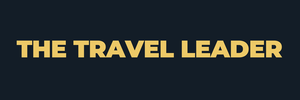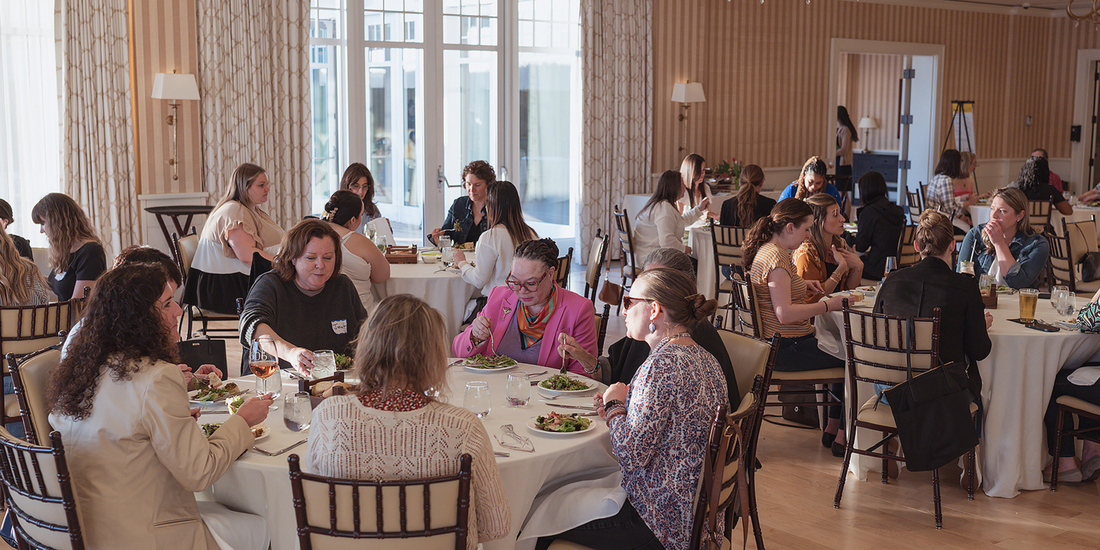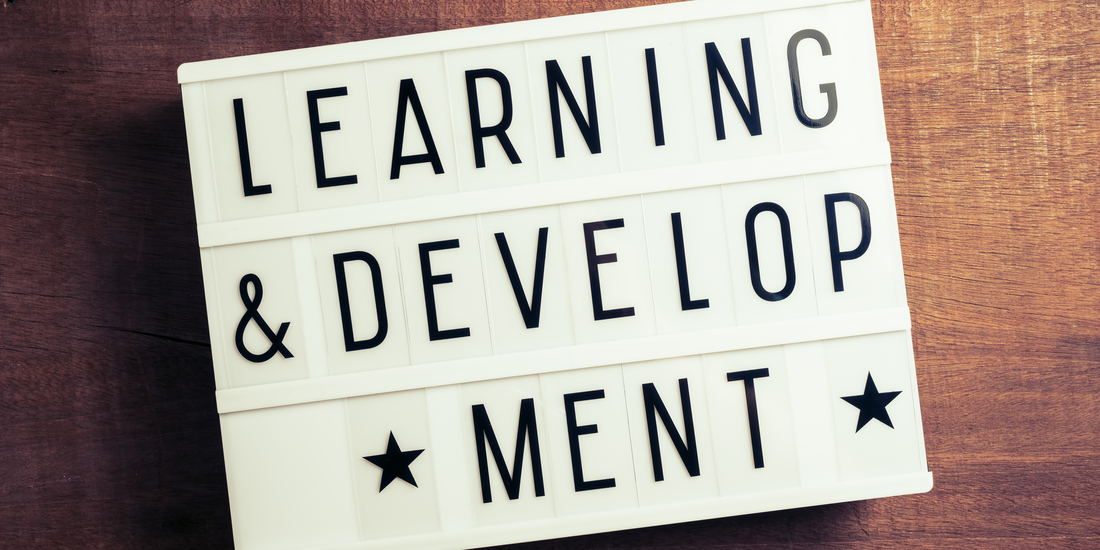|
The last couple of months I’ve had the opportunity to speak to different groups of hospitality professionals on leadership topics in Vermont, New York City, Connecticut and Rhode Island. Two were groups of leaders within the same hospitality company and two were network organizations for women leaders in hospitality. Communities like these have a tremendous opportunity to influence the professional development of leaders. Looking back to the different networks and communities I’ve participated in over the years and the ones I’ve spoken to, the best communities are those that share a number of common characteristics including purpose, connection, inspiration, learning and fun.
Shared goals or common purpose Communities are born when individuals come together for a common cause. Whether its to improve collaboration and team work within a company or to support women leaders like New York City Women of Hospitality or Accelerate Women Leaders in Travel, goals and purpose bring people together and support the development of a shared bond amongst them. Create and facilitate connection How well a community creates and facilitates connection is probably one of the most important determinants of the value participants attach to it and what keeps them engaged and committed. Professionals and leaders are eager to hear the experiences of their colleagues and learn from both their successes and failures. Connection also contributes to a feeling of solidarity that is critical for leaders who might feel isolated or overwhelmed. Communities that do this best provide a “safe space” container or structure and programming that fosters interaction, dialogue and sharing. Inspire and motivate Let’s face it, sitting in our offices day in and day out or working at the same venues with the same people can be a grind. We can also get stuck in patterns of thinking and behavior and only see narrow solutions for our challenges. Communities provide opportunities to hear new experiences and information that can trigger renewed enthusiasm and dedication. Provide actionable learning One of the questions I ask myself when thinking about joining a community is: What will I learn here that will contribute to my career goals? I strongly believe that an educational component is critical for successful communities. I’m looking for opportunities to learn industry trends, solutions for challenges and actionable strategies that will help me grow personally and professionally. These learning opportunities can come from within the network from leaders who have a different set of skills, experiences and expertise than I do or from outside thought leaders. Integrate fun and energizing experiences You know what they say, "all work and no play"….professional relationships are founded on more than shop talk. These relationships can become stronger when individuals share experiences that bring in some form of “play” whether its an outdoor adventure, a volunteer activity or a mix and mingle event. To perform at their best, leaders also need periods of rest mixed with work. When I created Accelerate Women Leaders in Travel in 2019 it came from a very personal need to connect with other leaders like me. Accelerate has evolved and grown from a one off event into a community of connected and like-minded women leaders in hospitality and travel. I have found that each of the elements above have supported our growth and evolution and that they work interdependently to create an experience that our leaders come back to year after year. Are you looking for a leadership community in the hospitality and travel industry? Check these out! Each of these communities has regular conferences, events and/or networking calls and groups. Accelerate Women Leaders in Travel American Hotel and Lodging Association/ForWard hertelier HSMAI New England Inns and Resorts Association New York City Women of Hospitality Travel Unity Women Leading Travel and Hospitality Vermont Lodging Association (or your state hospitality association)
0 Comments
“What got you here, won’t get you there”…
I’ve learned that lesson many times over the years, especially as a business owner. Typically here’s how it goes. I set a goal or an expectation to achieve more and I hit a brick wall. Effort and my existing set of resources, knowledge and experiences are no longer helpful in getting me to where I need to be. This is the moment that I start thinking about where I’m going to get those things so I can move forward. In 2019, my husband and I came to such a moment. We knew we had come to a cross-roads with our restaurant and attractions business. We felt that we lacked foundational knowledge and some skill sets to run that part of our business more professionally and to produce better results. To address this, we brought in a restaurant consulting firm. They conducted an assessment, shared their expertise and systems and provided insight on where we could go move forward. It was a big investment but it paid off not just in our confidence levels but also bottom line results. Learning has been a value of mine since as far back as I can remember. Even though it didn’t always come naturally, I found it rewarding to come to a point where I knew something that I didn’t know before. In these early years traditional education was my main source of new knowledge and trigger to change my performance. Over the years, I’ve been lucky enough to be exposed to a wide variety of opportunities to learn in different formats. From this process I also discovered that not all forms of knowledge and resources have the same kind of impact and different formats are better for some things than others. It wasn’t until more recently, however, that I uncovered the reason why some formats are better at different times than others. In their book “Leading Beyond change: a Practical Guide to Evolving Business Agility”, the authors provide the context to answer this question. What they describe is that different learning approaches can fall into three categories 1) Knowing, 2) Practices, Techniques and Skills, and 3) Being. As you employ different approaches the impact they have on your evolution increases. Its not always easy to know what approach to apply for which situation and when. In the story above we were missing key pieces of knowledge. Neither my husband nor I had any formal training in restaurant management or the culinary arts. We also didn’t have the time to do a lot of self-study. This is why we brought in the consulting firm. They had the knowledge we needed, they had nailed repeatable processes from their many years of experience, and we could get that knowledge relatively quickly from them. The approach with this consultant also included some skill building. They didn’t just hand us a report and call it a day. There was an on-going exchange and interaction in which we discussed our weaknesses and they helped us formulate methods to improve upon them. After about five or six years of running our hotel and attractions business, I found that knowledge and skill building, including a two year hospitality certificate with Cornell, was starting to reach its limit in terms of what it could do to improve my performance. Patterns became apparent related to my behavior, the consequences of my behavior with others, interpersonal relations, confidence, ability to make decisions, job satisfaction and my general professional and personal well-being. These patterns of behaviors were beginning to become serious obstacles to high performance. All of that just described, are examples of the “being” referred to above. For this, I needed a different approach. To “be” a different person, I doubled down on my reading about personal and organizational development. The turning point came when I engaged with a coach. The journey has continued with efforts including creating a leadership retreat for women in travel, developing a meditation practice and finally, becoming a coach myself. The impact of my focus on the “being” vs. the doing, has been profound. I’ve developed a different mindset which enables me to address almost any challenge with a new sense of confidence and stability, even if I don’t have the immediate knowledge or skills needed to address it. In a nutshell, it was for me like having all the best components and parts for a car (knowledge and skills) but the car still kept stalling out. Once I cleaned up the engine and made it run better (being) I could really put the pedal to the metal and accelerate. I’ve put together some examples of learning and development approaches that fall under the three categories as described above 1) Knowing, 2) Practices, techniques and skills, 3) Being. This resource list is far from exhaustive and its not always black and white what sources of learning might fall in which category. Some sources may fall into more than one category and impact people differently. Get access to the resource list here and feel free to reach out anytime with questions around this topic or to learn more about coaching with PEAK. |
AuthorRachel Vandenberg is a leadership coach living in Stowe, Vermont with her husband and three children. Rachel also owns and operates a hotel and attractions property with her family. She sits on the board of the local tourism association and also created a leadership retreat for women leaders in travel. Archives
July 2024
Categories
All
|



 RSS Feed
RSS Feed
